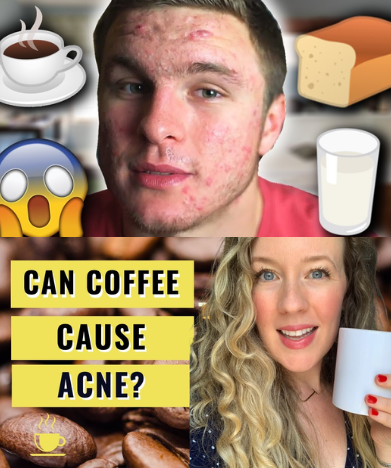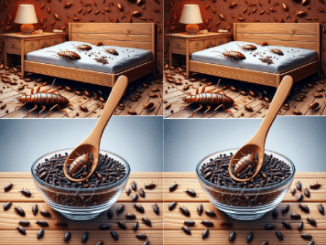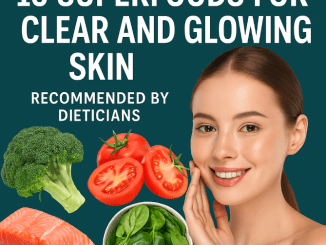
Coffee fuels mornings, sparks conversations, and keeps millions of us energized throughout the day. With more than 400 billion cups consumed annually worldwide, it’s safe to say coffee isn’t just a drink—it’s a ritual. But if you struggle with acne, you might have wondered: Does coffee actually cause breakouts? The answer isn’t as straightforward as you might think.
Let’s dive deep into how coffee interacts with your skin, what habits to avoid, and how you can still enjoy your favorite brew without worrying about your complexion.
Does Coffee Really Cause Acne?
Here’s the good news: there’s no scientific evidence proving that coffee directly causes acne. However, coffee isn’t completely off the hook either. The main culprit lies in caffeine, which stimulates cortisol—better known as the “stress hormone.” Elevated cortisol levels can trigger oil production, disrupt sleep patterns, and create an environment where acne thrives.
Think of it this way: coffee itself isn’t the problem, but how it influences your body’s stress response and sleep quality can set the stage for breakouts.
The Hidden Role of Stress and Sleep
Have you ever noticed your skin looking worse during exam week, big deadlines, or sleepless nights? That’s cortisol in action. A 2017 study even confirmed that stress correlates with acne severity. If caffeine from coffee keeps you awake or heightens stress, it can worsen existing acne—even if it doesn’t directly cause new pimples.
Bottom line: if you’re sleep-deprived and running on coffee, your skin may pay the price.
Why How You Drink Coffee Matters
Here’s the twist—your skin’s reaction to coffee depends less on the coffee itself and more on what you put in it. Milk, sugar, and fancy syrups may make your latte taste heavenly, but they could be fueling your breakouts.
- Dairy products: Studies link milk to increased acne. Hormones in dairy can stimulate oil glands, leading to clogged pores.
- Refined sugar: High sugar intake triggers glycation, a process that damages collagen and elastin—the proteins responsible for smooth, youthful skin. This not only increases the risk of acne but also speeds up aging.
When you strip away these extras, black coffee looks a lot less guilty. In fact, a 2018 study found that people who drank black coffee had less severe acne compared to those who consumed coffee with milk and sugar.
Video : The Truth About Coffee : Effects On Acne
Smarter Ways to Enjoy Coffee Without Breakouts
If giving up coffee feels impossible, don’t worry—you don’t have to. The trick is to make small changes that protect your skin while still letting you enjoy your daily cup.
- Choose black coffee ☕
Skip the cream and sugar. If you can’t stand it plain, try almond or oat milk instead of dairy, and opt for natural sweeteners like stevia. - Time it right ⏰
Avoid drinking coffee in the late afternoon or evening. Caffeine has a half-life of about 5–6 hours, so that evening latte could be the reason you toss and turn at night. Poor sleep equals higher cortisol levels, and higher cortisol means more acne flare-ups. - Stay hydrated 💧
Coffee is a mild diuretic, which means it can dehydrate your skin if you don’t balance it out with water. Dehydrated skin produces more oil to compensate, leading to clogged pores. - Keep portions moderate 🍵
Two to three cups a day are generally safe and even beneficial for health. The problem starts when you down five or more cups daily.
Coffee and Skin Health: The Bigger Picture
Interestingly, coffee also contains antioxidants that fight inflammation and free radicals—two enemies of clear skin. These compounds can actually benefit your complexion if consumed moderately and without unhealthy add-ons.
So instead of blaming coffee entirely, it’s wiser to look at your overall lifestyle: Are you stressed? Sleeping poorly? Loading your coffee with sugar and milk? These factors together influence whether your morning brew helps or harms your skin.
What About Alternatives?
If you’re highly sensitive to caffeine or prone to anxiety-induced breakouts, you might want to switch things up:
- Green tea: Provides a gentler caffeine kick and is packed with skin-loving antioxidants.
- Herbal teas: Chamomile or rooibos won’t stimulate cortisol and can help you relax.
- Decaf coffee: Offers the taste you love without the cortisol-spiking effects of caffeine.
Video : Is drinking coffee bad for your skin?| Dr Dray
The Final Takeaway
Coffee doesn’t directly cause acne—it’s all about how you drink it. Black coffee in moderation is unlikely to harm your skin and might even offer antioxidant benefits. But when you add sugar, dairy, or drink it late into the night, coffee can indirectly worsen breakouts by disrupting hormones, spiking stress, or affecting sleep.
So the next time someone blames their skin troubles on coffee alone, you’ll know the truth: your cup of joe isn’t the villain—it’s the extras and the timing that really matter.


